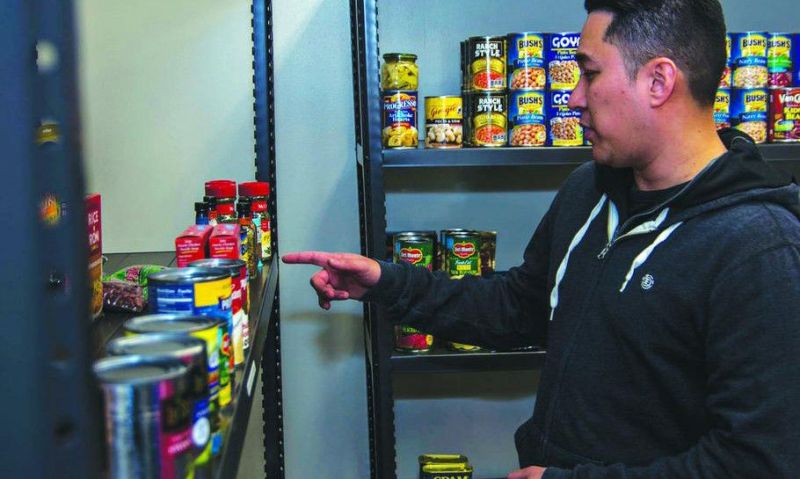
From food banks to pay advances, troops have help in a government shutdown
Credit unions and aid societies are standing by to help service members and Defense Department employees who may have to work without a paycheck if a government shutdown takes place Sunday.
Talks on Capitol Hill on Thursday failed to produce even a stopgap measure to keep the federal government running — or pay the military — until Congress can agree to a funding plan for the next fiscal year.
“It’s a unique situation over here, compared to what stateside installations could be dealing with, but we’re going to do our best,” Yokosuka Naval Base spokesman Randall Baucom told Stars and Stripes by phone Friday. “It’s not really that any of our services will be unavailable, it’s just the capacity of those services may be reduced.”
Many of those who do the heavy lifting will likely go without compensation.
Most service members are “excepted” during a shutdown, meaning they must work without pay; many civilian employees, such as teachers and school-level staff at on-base schools, are also excepted, according to a Defense Department shutdown contingency plan compiled in August.
Excepted service members and civilians would receive backpay once the funding crisis is resolved.
Some civilian employees will be furloughed. Others, including many at nonappropriated fund activities such as base exchanges, will continue working, with pay, according to the contingency plan.
Help available
For those who hold the line without compensation, some assistance is available to help them pay for rent and groceries.
Navy Federal Credit Union is offering paycheck advances to its eligible account holders with direct deposit, the bank announced on its website Tuesday. Active-duty service members, federal government employees and contractors “who are paid directly by the Federal government” are eligible, provided they have direct deposit with Navy Federal.
USAA is also offering a “one-time, no interest loan” equal to an eligible member’s net pay — from $500 to $6,000 — to help bridge a shutdown financial gap. Eligible members must also have payday direct deposit with the credit union.
Additional resources include on-base food banks, Military OneSource, the Navy-Marine Corps Relief Society, the Air Force Aid Society, Army Emergency Relief, Coast Guard Mutual Assistance Relief Society and the Department of the Navy Civilian Employee Assistance Program.
On Okinawa, rumors circulated that service members will be paid during a shutdown, said Marine Cpl. Joseph Fisher, a computer technician with Combat Logistics Regiment 37 at Camp Kinser.
“I had friends in the last shutdown and they still got paid,” he said Friday at the Camp Foster commissary. “As far as active-duty service members, I don’t think we have anything to worry about.”
Congress did make sure the military was paid during the last government shutdown, the nation’s longest, from December 2018 to January 2019.
Business as usual, almost
Exchanges and commissaries will stay open, along with Morale, Welfare and Recreation departments, mess halls, fitness centers and “child care activities required for readiness,” according to the contingency plan.
U.S. Forces Japan did not respond Friday to an emailed request for further information on a potential shutdown.
Some services, like family and individual counseling, may be available intermittently during a shutdown, said a spokeswoman for Joint Region Marianas on Guam.
Some programs, such as military housing offices, Warfighter and Family Service Centers and counseling services, will remain open but may experience “delays or service interruptions,” joint region spokeswoman Catherine Norton said by email Friday.
On Okinawa, Marine spouse Ariana Bernard said she was tired of the “back and forth” in Congress and was “a little” concerned about the looming shutdown.
“I feel like it always happens,” she said. “Make a decision earlier. You know the deadline is coming. Everybody else has to make their deadlines, so why not hold them accountable?”
Stars and Stripes reporters Matthew M. Burke, Seth Robson and Alex Wilson contributed to this report.
